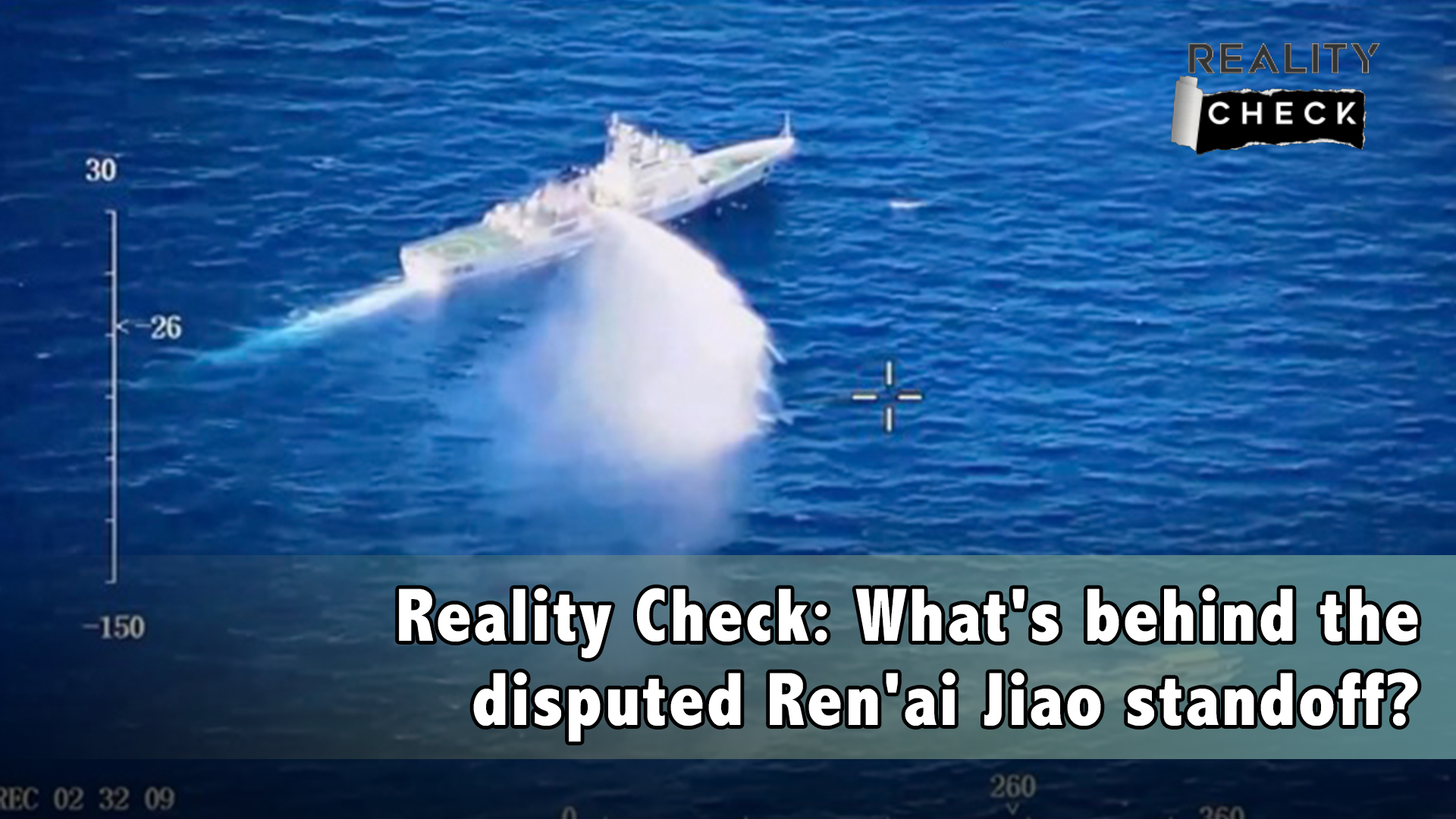Tensions rise at Ren'ai Jiao as China Coast Guard blocks Philippine navy vessels challenging China's sovereignty. "Water cannon is one of the mildest means of maritime law enforcement," says Yan Yan, expert on South China Sea. "It's a show China's self-restraint."
02:08

Yan Yan: There's no damage and no casualty during this whole process. And water cannon is actually one of the mildest means of maritime law enforcement. And also, the Chinese Coast Guard does not target it at the Philippine vessel itself. It's a show of China's self-restraint, and it's just to warn our Philippine counterparts and try to stop them from entering that area.
Actually, I wanted to remind everybody of the 2002 Declaration on the Conduct of Parties, the DOC, and what is important is Article 5 of the DOC, which says the parties undertake must exercise self-restraint in the conduct of activities that will complicate or escalate disputes. Thus, we think that all of the claimant states in ASEAN, especially the South China Sea claimant states, should really exercise self-restraint and trying to not to change the status quo before we reach the final settlement of the dispute.
Liu Xin: Some in the Philippines based their claim to the islands on the grounds that the reef is very close to the Philippines and that the so-called tribunal in the Hague in 2016 kind of awarded the reef, not to China. Can you explain China's counterarguments very quickly, Doctor Yan?
Yan Yan: We must realize that UNCLOS does not deal with territorial sovereignty disputes, and also, neither contiguity nor proximity is the basis under international law for acquiring territory. Thus, we didn't recognize the Philippines' claim on the Spratly Islands, the Nansha Qundao. And also, it has been seven years since the arbitral ruling came out, and we don't think, we don't see the settlement of the final dispute, neither the maritime cooperation moving forward. Thus, I think that there is, this is time for us to think about maritime cooperation for the benefit of all.